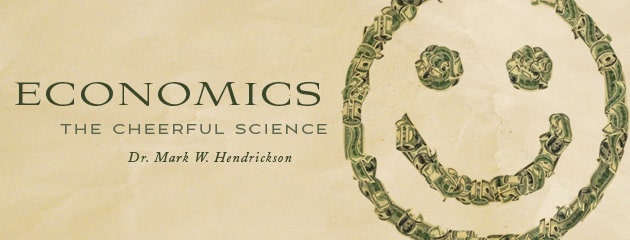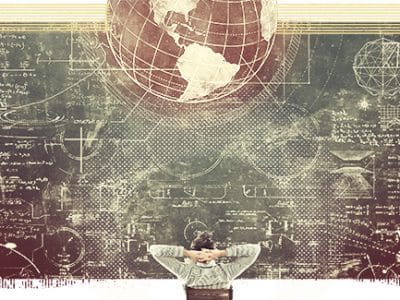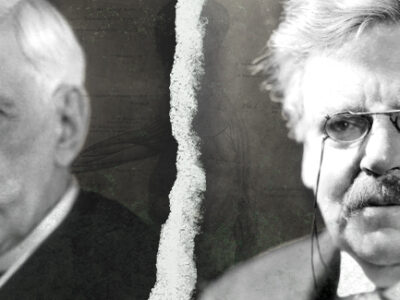
Chances are, you’ve heard economics referred to as “the dismal science.” That unflattering description is glib and catchy; it is also 100 percent wrong. Let me set the record straight and explain why economics—far from being dismal—is cause for hope, joy, cheer, and optimism.
Thomas Carlyle, a 19th-century Scottish essayist, coined the phrase “the dismal science.” Carlyle was reacting to grim predictions made by the classical economists David Ricardo (1772-1823) and Thomas Malthus (1766-1834). Ricardo posited an “iron law of wages” whereby a constant oversupply of laborers would mercilessly keep wages at a bare subsistence level. Malthus became the intellectual forerunner of today’s gloom-and-doom environmentalists by asserting that the human population tended to increase geometrically while the means of sustenance would grow only arithmetically. Echoing Ricardo’s “iron law,” Malthus’ grim mathematical theory predicted that workers would be trapped forever in lives of poverty.
Yes, those theories were dismal. Thankfully, though, they were completely untrue. Subsequent events utterly demolished them. In country after country, populations and standards of living have risen by multiples since the days of Ricardo and Malthus. The classical economists failed to foresee such future phenomena as widespread middle-class affluence or people being defined as “poor” despite having cars, air conditioners, and cell phones (not to mention indoor plumbing, a reliable supply of clean water, and other conveniences that most people lacked in 1800).
Let’s not be too harsh in judging Ricardo and Malthus for their lack of foresight. Who, in 1800, could have foreseen the rise of capitalism that made possible the marvelous growth of productivity and wealth that would transform the world over the next two centuries? To do so would have been to envision a state of affairs without historical precedent, entirely outside their scope of experience or knowledge.
What was “dismal” to Carlyle was not economic science, but economic error. Would it be fair to dub aeronautics a “dismal science” on the basis of the many failed attempts at manned flight in the pre-Wright brothers era?
The fact is that “economics,” as a distinct science, was still in its embryonic stage when Carlyle wrote. We generally acknowledge 1776 as the birthdate of “classical economics,” because that is when Adam Smith published his masterful Wealth of Nations. Smith, however, was not an economist by profession, for the simple reason that there was not yet a distinct field of study known as “economics” nor any such profession as “economist.” Smith was a moral philosopher. Neither were his successors, Ricardo and Malthus, economists per se. Ricardo was a businessman, investor, and politician. Malthus was a preacher known best for his demographic theories. Malthus achieved the distinction of holding England’s very first chair in “political economy” (a discipline not yet subdivided into political science and economics) when it was established at the East India Company College in 1805.
The several generations of political economists who followed Smith, Ricardo, and Malthus (today known as “classical economists”) further developed our understanding of markets, the coordinating function of prices (the “invisible hand”), the division of labor, etc. However, they still hadn’t discovered the foundational principle of economics, and so they were still in the grip of such fundamental errors as “the labor theory of value.”
“Economics” as a modern science didn’t emerge until 1871 — 22 years after Carlyle branded economics “the dismal science.” That is when “neoclassical economics” emerged following the crucial theoretical breakthrough of finally figuring out what “value” is. There is no valid economic science without understanding the concept of value any more than you can have chemical science without understanding valences, biological science without understanding cells, or mathematics without the concept of zero.
Since Carl Menger’s brilliant discovery and articulation of the “subjective theory of value” in 1871, economic science has flourished, culminating logically in Ludwig von Mises’ general theory of human action, called praxeology. Mises used the science of economics/praxeology to prove a priori that socialism literally could not be viable, and that if one’s goal is a society with rising standards of living, then private property, limited government, and free markets are the necessary means to achieve that goal. In the decades since Mises explained how the world works, the rise of affluence in country after country has confirmed the validity of his theories.
Mises’ economic science has unlocked the secrets of wealth creation. We know which policies work and which are counterproductive. This is spectacularly good news. We now have the economic knowledge to unlock humankind’s potential for eliminating chronic poverty and living and working together in peace and prosperity.
Why, then, is there so much “dismal” news on the economic front today? Because politics has trumped economics. Politicians allied with special interests have ignored and trampled economic principles for their own selfish purposes, thereby retarding the rapid progress toward abundance that economic science makes available to us.
Since 1995, the Heritage Foundation and Wall Street Journal have published an annual Index of Economic Freedom that assesses 10 political conditions that affect wealth creation. More freedom, as measured by this index, correlates significantly with economic growth. The recently released 2012 edition shows that the United States has fallen to the 10th-freest economy in the world. It is no coincidence that our economic growth has stagnated as economic activity has become less free. [Update: In the 2021 edition, the US ranks 20th.]
This bad news has a silver lining: We know what we need to do to return to prosperity. Economic science will work in our favor—if only we adhere to its inexorable principles and get the oppressive burden of Big Government and failed political ideologies off our backs.
The dismal clouds on today’s horizon are a toxic mixture of moral corruption, political power-grabbing, and economic error. Economic truth liberates human beings from poverty and stagnation. It is the light that illumines the way. When understood, economics is indeed a cheerful science.




